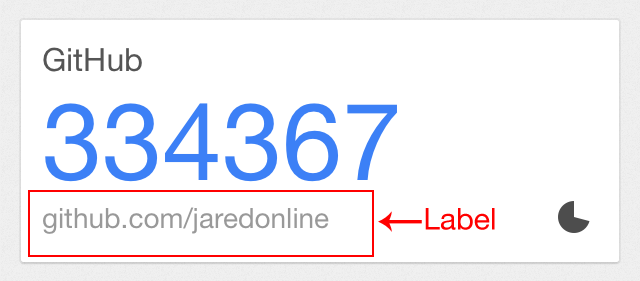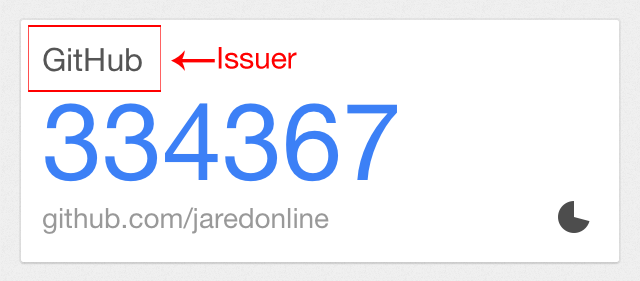Rails (ActiveRecord) integration with the Google Authenticator apps for Android and the iPhone. Uses the Authlogic style for cookie management.
Add this line to your application's Gemfile:
gem 'google-authenticator-rails'
And then execute:
$ bundle
Or install it yourself as:
$ gem install google-authenticator-rails
Example:
class User
acts_as_google_authenticated
end
@user = User.new
@user.set_google_secret # => true
@user.google_secret_value # => 16-character plain-text secret, whatever the name of the secret column
@user.google_qr_uri # => http://path.to.chart/qr?with=params
@user.google_authentic?(123456) # => true
@user.clear_google_secret! # => true
@user.google_secret_value # => nilWhen setting up an account with GoogleAuthenticatorRails you need to provide a label for that account (to distinguish it from other accounts).
GoogleAuthenticatorRails allows you to customize how the record will create that label. There are three options:
- The default just uses the column
emailon the model - You can specify a custom column with the
:column_nameoption - You can specify a custom method via a symbol or a proc
Example:
class User
acts_as_google_authenticated :column_name => :user_name
end
@user = User.new(:user_name => "ted")
@user.google_label # => "ted"
class User
acts_as_google_authenticated :method => :user_name_with_label
def user_name_with_label
"#{user_name}@example.com"
end
end
@user = User.new(:user_name => "ted")
@user.google_label # => "[email protected]"
class User
acts_as_google_authenticated :method => Proc.new { |user| user.user_name_with_label.upcase }
def user_name_with_label
"#{user_name}@example.com"
end
end
@user = User.new(:user_name => "ted")
@user.google_label # => "[email protected]"Here's what the labels look like in Google Authenticator for iPhone:
The "google secret" is where GoogleAuthenticatorRails stores the
secret token used to generate the MFA code.
You can also specify a column for storing the google secret. The default is google_secret.
Example
class User
acts_as_google_authenticated :google_secret_column => :mfa_secret
end
@user = User.new
@user.set_google_secret
@user.mfa_secret # => "56ahi483"You can specify a custom drift value. Drift is the number of seconds that the client and server are allowed to drift apart. Default value is 5 seconds.
class User
act_as_google_authenticated :drift => 31
endYou can also specify which column the appropriate MfaSession subclass should use to look up the record:
Example
class User
acts_as_google_authenticated :lookup_token => :salt
endThe above will cause the UserMfaSession class to call User.where(:salt => cookie_salt) or User.scoped(:conditions => { :salt => cookie_salt }) to find the appropriate record.
GoogleAuthenticatorRails makes one very large assumption when attempting to lookup a record. If your MfaSession subclass is named UserMfaSession it assumes you're trying to lookup a User record. Currently, there is no way to configure this, so if you're trying to lookup a VeryLongModelNameForUser you'll need to name your MfaSession subclass VeryLongModelNameForUserMfaSession.
For example:
# app/models/user.rb
class User < ActiveRecord::Base
acts_as_google_authenticated
end
# app/models/user_mfa_session.rb
class UserMfaSession < GoogleAuthenticatorRails::Session::Base
endGoogleAuthenticatorRails looks up the record based on the cookie created when you call MfaSession#create. The #create method looks into the record class (in our example, User) and looks at the configured :lookup_token option. It uses that option to save two pieces of information into the cookie, the id of the record and the token, which defaults to persistence_token. persistence_token is what Authlogic uses, which this gem was originally designed to work with.
This can cause a lot of headaches if the model isn't configured correctly, and will cause a GoogleAuthenticatorRails::Session::Persistence::TokenNotFound error.
This error appears for one of three reasons:
userisniluserdoesn't respond to:persistence_tokenuser.persistence_tokenis blank
For example:
# app/models/user.rb
class User < ActiveRecord::Base
acts_as_google_authenticated
end
# Model has attributes:
# id: integer
# name: string
# salt: string
# app/models/user_mfa_session.rb
class UserMfaSession < GoogleAuthenticatorRails::Session::Base
end
# app/controllers/mfa_session_controller.rb
class MfaSessionController < ApplicationController
def create
UserMfaSession.create(user) # => Error: GoogleAuthenticatorRails::Session::Persistence::TokenNotFound
end
endThe above example will fail because the User class doesn't have a persistence_token method. The fix for this is to configure actions_as_google_authentic to use the right column:
# app/models/user.rb
class User < ActiveRecord::Base
acts_as_google_authenticated :lookup_token => :salt
end
# Model has attributes:
# id: integer
# name: string
# salt: string
# app/models/user_mfa_session.rb
class UserMfaSession < GoogleAuthenticatorRails::Session::Base
end
# app/controllers/mfa_session_controller.rb
class MfaSessionController < ApplicationController
def create
UserMfaSession.create(user)
end
endThis call to #create will succeed (as long as user.salt is not nil).
You can also specify a name for the 'issuer' (the name of the website) where the user is using this token:
Example
class User
acts_as_google_authenticated :issuer => 'example.com'
endYou can also use a Proc to set a dynamic issuer for multi-tenant applications or any other custom needs:
class User
acts_as_google_authenticated :issuer => Proc.new { |user| user.admin? ? "Example Admin" : "example.com" }
endThis way your user will have the name of your site at the authenticator card besides the current token.
Here's what the issuers look like in Google Authenticator for iPhone:
This is a very rough outline of how GoogleAuthenticatorRails is meant to manage the sessions and cookies for a Rails app.
# Gemfile
gem 'rails'
gem 'google-authenticator-rails'First add a field to your user model to hold the Google token.
class AddGoogleSecretToUser < ActiveRecord::Migration
def change
add_column :users, :google_secret, :string
end
end# app/models/users.rb
class User < ActiveRecord::Base
acts_as_google_authenticated
endIf you want to authenticate based on a model called User, then you should name your session object UserMfaSession.
# app/models/user_mfa_session.rb
class UserMfaSession < GoogleAuthenticatorRails::Session::Base
# no real code needed here
end# app/controllers/user_mfa_session_controller.rb
class UserMfaSessionController < ApplicationController
def new
# load your view
end
def create
user = current_user # grab your currently logged in user
if user.google_authentic?(params[:mfa_code])
UserMfaSession.create(user)
redirect_to root_path
else
flash[:error] = "Wrong code"
render :new
end
end
end# app/controllers/application_controller.rb
class ApplicationController < ActionController::Base
before_filter :check_mfa
private
def check_mfa
if !(user_mfa_session = UserMfaSession.find) && (user_mfa_session ? user_mfa_session.record == current_user : !user_mfa_session)
redirect_to new_user_mfa_session_path
end
end
endYou can configure the MfaSession cookie by creating an initializer:
# config/initializers/google_authenticator_rails.rb
# The cookie normally expires in 24 hours, you can change this to 1 month
GoogleAuthenticatorRails.time_until_expiration = 1.month
# You can override the suffix of the cookie's key, by default this is mfa_credentials
GoogleAuthenticatorRails.cookie_key_suffix = 'mfa_credentials'
# Rails offers a few more cookie options, by default only :httponly is turned on, you can change it to HTTPS only:
GoogleAuthenticatorRails.cookie_options = { :httponly => true, :secure => true, :domain => :all }Additional cookie option symbols can be found in the Ruby on Rails guide.
If you want to manually destroy the MFA cookie (for example, when a user logs out), just call
UserMfaSession::destroyNormally, if an attacker gets access to the application database, they will be able to generate correct authentication codes,
elmininating the security gains from two-factor authentication. If the application's secret_key_base is handled more securely
than the database (by, for example, never putting it on the server filesystem), protection against database compromise can
be gained by setting the :encrypt_secrets option to true. Newly-created secrets will then be stored in encrypted form.
Existing non-encrypted secrets for all models for which the :encrypt_secrets option has been set to true
can be encrypted by running
rails google_authenticator:encrypt_secretsThis may be reversed by running
rails google_authenticator:decrypt_secretsthen by removing, or setting false, the :encrypt_secrets option.
If secret_key_base needs to change, set old_secret_key_base to the old key in config/secrets.yml before generating the new key.
Then run
rails google_authenticator:reencrypt_secretsto change all encrypted google secret fields to use the new key.
If the app is not running under Rails version 4.1 or above, encryption will be disabled, and a warning issued if :encrypt_secrets
is enabled on a model.
If encryption is enabled for a model, the Google secret column of its table must be able to hold at least 162 characters, rather than just 32.
- Fork it
- Create your feature branch (
git checkout -b my-new-feature) - Commit your changes (
git commit -am 'Added some feature') - Push to the branch (
git push origin my-new-feature) - Create new Pull Request
MIT.




